To provide the best experiences, we use technologies like cookies to store and/or access device information. Consenting to these technologies will allow us to process data such as browsing behaviour or unique IDs on this site. Not consenting or withdrawing consent, may adversely affect certain features and functions.
The technical storage or access is strictly necessary for the legitimate purpose of enabling the use of a specific service explicitly requested by the subscriber or user, or for the sole purpose of carrying out the transmission of a communication over an electronic communications network.
The technical storage or access is necessary for the legitimate purpose of storing preferences that are not requested by the subscriber or user.
The technical storage or access that is used exclusively for statistical purposes.
The technical storage or access that is used exclusively for anonymous statistical purposes. Without a subpoena, voluntary compliance on the part of your Internet Service Provider, or additional records from a third party, information stored or retrieved for this purpose alone cannot usually be used to identify you.
The technical storage or access is required to create user profiles to send advertising, or to track the user on a website or across several websites for similar marketing purposes.
 Millions of British workers face uncertainty as a snapshot of the nation’s work practices claims that one in five employees are unsure whether they’ll be expected to work remotely, onsite, or a mix of both in the future. Without having a clear decision from their employer, some employees are unsure about their organisations’ return-to-office plans. More →
Millions of British workers face uncertainty as a snapshot of the nation’s work practices claims that one in five employees are unsure whether they’ll be expected to work remotely, onsite, or a mix of both in the future. Without having a clear decision from their employer, some employees are unsure about their organisations’ return-to-office plans. More →







 Completions in central London are expected to hit a three-year high, with 5.5m sq ft scheduled for delivery by the end of this year, according to
Completions in central London are expected to hit a three-year high, with 5.5m sq ft scheduled for delivery by the end of this year, according to 
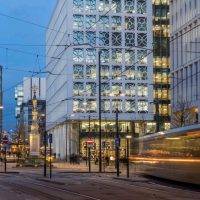 New ways of working will boost UK productivity and increase employment levels in cities outside of London, according to a new report from KPMG. And as businesses in some sectors prepare for employees to spend two to three days a week working from home on a permanent basis, demand for office space could see capacity potentially increase by as much as 40 percent, according to a new KPMG report,
New ways of working will boost UK productivity and increase employment levels in cities outside of London, according to a new report from KPMG. And as businesses in some sectors prepare for employees to spend two to three days a week working from home on a permanent basis, demand for office space could see capacity potentially increase by as much as 40 percent, according to a new KPMG report, 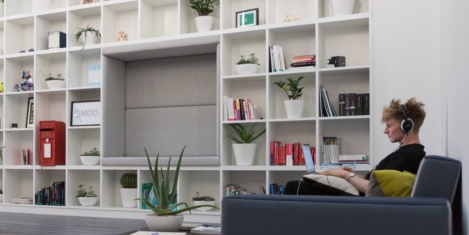
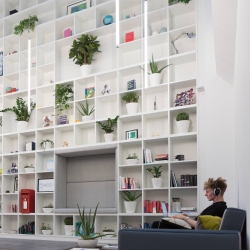 CEOs of the world’s largest businesses are increasingly optimistic about the outlook for their own business, according to the latest
CEOs of the world’s largest businesses are increasingly optimistic about the outlook for their own business, according to the latest 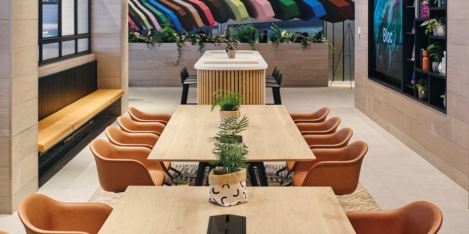

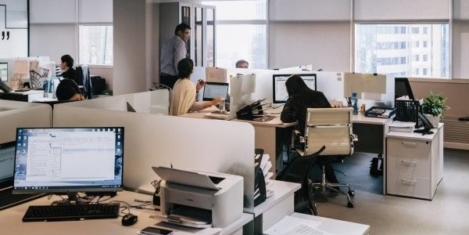
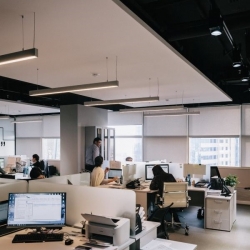 Pent-up demand on hold in 2020 has returned with office take-up in the first half of this year nearly a quarter above the five-year average, according to
Pent-up demand on hold in 2020 has returned with office take-up in the first half of this year nearly a quarter above the five-year average, according to 
 Working from home has not only laid bare just how much we miss interaction with colleagues, but also how the office could and should support employees to work and feel better, so that they will not only feel safe to return, but will want to return. Through
Working from home has not only laid bare just how much we miss interaction with colleagues, but also how the office could and should support employees to work and feel better, so that they will not only feel safe to return, but will want to return. Through 
 One of the least talked about potential casualties of the recent lockdowns is the printed page. In a sign that the arrival of the paperless office may have been accelerated, total worldwide page volumes printed from office and home devices plummeted nearly 14 percent year in 2020 after several years of stable but slow decline. According to the research from
One of the least talked about potential casualties of the recent lockdowns is the printed page. In a sign that the arrival of the paperless office may have been accelerated, total worldwide page volumes printed from office and home devices plummeted nearly 14 percent year in 2020 after several years of stable but slow decline. According to the research from 
 With much of Europe having worked remotely for over a year and many continuing to do so for the foreseeable future, new insights from
With much of Europe having worked remotely for over a year and many continuing to do so for the foreseeable future, new insights from 
 New research commissioned by
New research commissioned by 









October 29, 2021
An office reset was what we all needed, and wanted
by Richard Kauntze • Comment, Property, Workplace design